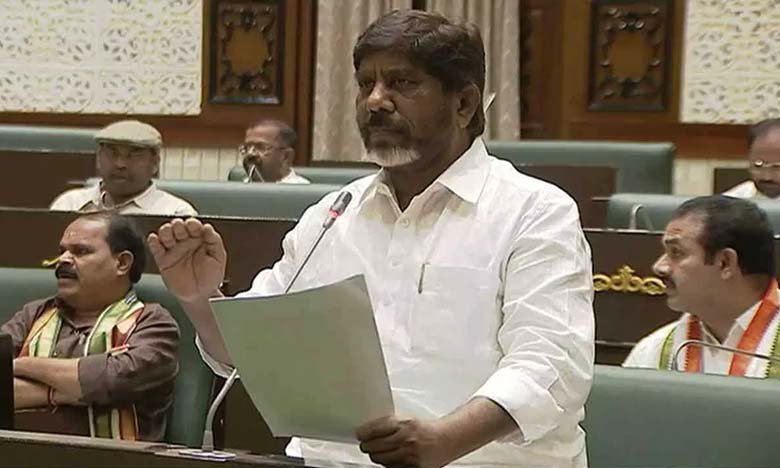Telangana: Good News for Unemployed – 10,954 Village-Level Jobs Coming in Revenue Department!

Hyderabad, 19 March – (www.deccanlive.com): Telangana Deputy Chief Minister Bhatti Vikramarka presented the state budget in the Legislative Assembly on Wednesday (March 19). This is the second budget introduced by the Congress government since it came to power. The budget for the financial year 2025-26 is set at ₹3,04,965 crores, focusing on education, healthcare, agriculture, and welfare.
Out of the total budget, ₹2,26,982 crores is allocated for revenue expenses and ₹36,504 crores for capital expenses. Minister Bhatti Vikramarka announced that 10,954 village-level jobs will be created under the Revenue Department. He also mentioned that the process of issuing new ration cards started on January 26. Additionally, integrated schools will be established on land covering 20 to 25 acres.
The government also announced increases in diet charges by 40% and cosmetic charges by 200% in welfare hostels.
Major Budget Allocations for Various Departments:
- Agriculture Department – ₹24,439 crores
- Animal Husbandry – ₹1,674 crores
- Civil Supplies – ₹5,734 crores
- Education – ₹23,108 crores
- Employment Generation – ₹900 crores
- Panchayat Raj and Rural Development – ₹31,605 crores
- Women and Child Welfare – ₹2,862 crores
- Scheduled Castes Welfare – ₹40,234 crores
- Scheduled Tribes Welfare – ₹17,169 crores
- Backward Classes Welfare – ₹11,405 crores
- Handloom Sector – ₹371 crores
- Minority Welfare – ₹3,591 crores
- Industries Department – ₹3,527 crores
- IT Department – ₹774 crores
- Power Sector – ₹21,221 crores
- Health and Family Welfare – ₹12,393 crores
- Municipal and Urban Development – ₹17,677 crores
- Irrigation – ₹23,373 crores
- Home Department – ₹10,188 crores
- Endowments Department – ₹190 crores
- Forests and Environment – ₹1,023 crores
- Sports – ₹465 crores
- Tourism – ₹775 crores
- Roads and Buildings – ₹5,907 crores
The budget reflects the government’s focus on creating jobs, improving infrastructure, and supporting various welfare programs. The creation of nearly 11,000 village-level jobs is expected to reduce unemployment and strengthen the rural economy.





